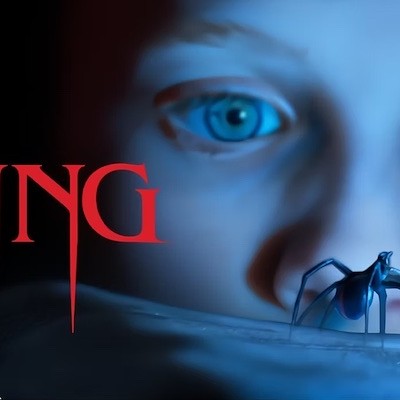Support Us
Houston's independent source of
local news and culture
account
- Welcome,
Insider - Login
- My Account
- My Newsletters
- Contribute
- Contact Us
- Sign out
Classical Theatre Aptly Produces A Doll's House, Ibsen's Story of a Young Wife Defying Convention
D. L. Groover February 12, 2016 8:00AM
[
{
"name": "Related Stories / Support Us Combo",
"component": "11591218",
"insertPoint": "4",
"requiredCountToDisplay": "4"
},{
"name": "Air - Billboard - Inline Content",
"component": "11591214",
"insertPoint": "2/3",
"requiredCountToDisplay": "7"
},{
"name": "R1 - Beta - Mobile Only",
"component": "12287027",
"insertPoint": "8",
"requiredCountToDisplay": "8"
},{
"name": "Air - MediumRectangle - Inline Content - Mobile Display Size 2",
"component": "11591215",
"insertPoint": "12",
"requiredCountToDisplay": "12"
},{
"name": "Air - MediumRectangle - Inline Content - Mobile Display Size 2",
"component": "11591215",
"insertPoint": "4th",
"startingPoint": "16",
"requiredCountToDisplay": "12"
}
,{
"name": "RevContent - In Article",
"component": "12527128",
"insertPoint": "3/5",
"requiredCountToDisplay": "5"
}
]
The setup:
It's the most famous sound effect in theater. “From below is heard the reverberation of a heavy door closing.” It's heard at the last moment of Henrik Ibsen's seminal drama A Doll's House (1879). It's the last sound we hear if you discount the aching sobs from husband Torvald, whose lovely young wife, Nora, has just walked out on him, leaving him breathlessly bereft and utterly stunned. She has walked out on her three children, bourgeois convention, wifely duty, propriety, patriarchy, position. She has slammed the door on all of them. As she heads off into unknown territory “to find herself,” she might as well also slam the door on the 19th century.
The execution:
Ibsen loved to slam doors. The Norwegian playwright's impressive block of work broke all sorts of rules as to what constituted the “well-made” play of the time. He was theater's first rebel, and his themes covered incest, syphilis, sins inherited from fathers, rampant egos and an aching yearning to be free, to find oneself, whatever the means and whatever it took to reach that unattainable goal. His plays were scandals – and great successes. After the premiere of A Doll's House, any well-heeled dinner party invitation came with an engraved caveat not to discuss it in the parlor. But the play sold out instantly and was soon produced all over Europe, creating a stir that has never abated.
Its sexual dichotomy still resonates. Pampered and treated like a porcelain doll, a role she relishes for the attention it garners, the adulation from her besotted husband and the position of prestige in being the wife of a respected bank manager, Nora, beneath her scatterbrain veneer, is at the proverbial crossroads. Deeply in love with her then-ill husband, she had forged her father's signature on a loan that secured needed medical help and saved his life. She has purloined her household money a bit at a time to pay it back, but she's in arrears and shady Krogstad is at the door with oily hand outstretched. Pay up or I'll tell. Ibsen starts his play here; it's all consequences from past action that move the drama inevitably forward, as Nora is caught in a widening set of lies and innuendo to keep Torvald innocent of her crimes.
The well-made aspects of this early work of naturalistic dialogue and clear-cut action are not as subtly handled as Ibsen would soon master in Ghosts, The Wild Duck and other classics, for there's much coincidence and contrivance – that letter in the mailbox, for one; the easy meeting of former lovers Mrs. Linde and blackmailer Krogstad, for another – but we're so consumed by what will happen to Nora if Torvald finds out that we quickly let these lapses pass. There's so much more going on underneath than plot points to be scored.
Classical Theatre Company glosses Ibsen with the wisps of memory – literally. Shredded, diaphanous material hangs over, above and through the set. It's like we're looking through all of Pavlova's discarded tutus. They get in our way, blocking the actors' faces. Visually audacious, it's more Miss Havisham than Nora. The idea of Nora's past seen as if in tatters is a good one, but it's been carried out with a vengeance. Better than the faded drapery are numerous “freezing” points during the play, when the action momentarily stops while Nora is bathed in spotlight – they last only a beat or two, but occur at pivotal moments for Nora. When, at the conclusion, Torvald plaintively cries, “Will you ever think of me...or the children?” we, too, think back on these freeze frames. But she's already etched them in her memory.
Directed by Classical's artistic director, John Johnston, the cast is very fine, impeccably trained in Ibsen-speak, which in translation can often sound stilted and highly fragrant. Shanae'a Rae Moore has the right age, figure and beauty for Nora, who's often called “squirrel,” “little bird” or “featherhead” by Torvald. Lithe and flighty, she's exactly what Torvald wants: a lovely little thing to scold and fuss over and possess. Ibsen does not make her easy to like as she's wayward, dishonest, vain and selfish, and Rae does not underplay her less admirable qualities. Her transformation into maturity is sudden but it's not abrupt; it's been building through the play, and those freeze frames help a great deal in easing the transition. In the crushing final scene where Nora's fate outside in the world is questionable, even Rae questions it. She grows up in front of our eyes. Kregg Dailey makes a perfect middle manager who has snagged a prize of a wife: smug, condescending, always on top and never to be contradicted. His saving grace is that he does love Nora, just not the Nora she longs to be. He fails her miserably by not coming to her rescue, and he cannot undo what he has done. She must leave, and leave she does.
As usual, Carl Masterson twinkles in this type of role that seems written especially for him. Dr. Rank is a shabby bon vivant, a wry philosopher, an odd man out, a dying breed. He, too, longs to take care of Nora, but, alas, he's lost his money. No one plays old-age resignation, or makes it sound so redolent, as does Masterson. He's an Ibsen lithograph come to life. In the other supporting roles, Erin Kidwell, as Mrs. Linde, Nora's former friend and budding career woman, and Jeff McMorrough, as blackmailer Krogstad, who isn't out for revenge so much as he wants a second chance, flesh out their portraits with firm chiaroscuro, even if their late-blooming romance has absolutely no fire whatever in it.
The costumes by La Cleverson are fairly ravishing. Sure, Nora's wardrobe is a looker – that green velvet ensemble would be the envy of old studio Hollywood, but the men's wear is particularly right with their woolly plaids and lived-in coats. The old housekeeper, Anne, played with a sly wink by Julie Oliver, sports a Whistler's Mother lace bonnet that's just right.
Now, about that famous front door – which Ibsen took pains that we not see, only hear. Exactly where does it lead? Sometimes people enter as though they've been outside; sometimes people come in as if they've been down the hall. Sometimes they walk through those shredded drapes and then walk around the door. What is it? No front door anywhere in Europe in 1890 led directly into someone's living room. Obviously it's there so Nora can make her grand exit. I wish I had seen it. Those damn wispy drapes blocked my view.
The verdict:
One of the titans of theater, Henrik Ibsen changed its face forever: its subject, its tone, its structure, what its characters talked about and how they said it. Ibsen people strive to find themselves, without apology, often without knowing exactly what they want to become. The Norwegian rebel, who looked, as a contemporary said, like your neighborhood pharmacist, gave these wayward people a voice for the ages. It clangs loudest today.
A Doll's House continues through February 21 at Classical Theatre Company, Chelsea Market, 4617 Montrose. For more information, call 713-963-9665 or visit classicaltheatre.org. $25.
KEEP THE HOUSTON PRESS FREE...
Since we started the Houston Press, it has been defined as the free, independent voice of Houston, and we'd like to keep it that way. With local media under siege, it's more important than ever for us to rally support behind funding our local journalism. You can help by participating in our "I Support" program, allowing us to keep offering readers access to our incisive coverage of local news, food and culture with no paywalls.
D.L. Groover has contributed to countless reputable publications including the Houston Press since 2003. His theater criticism has earned him a national award from the Association of Alternative Newsmedia (AAN) as well as three statewide Lone Star Press Awards for the same. He's co-author of the irreverent appreciation, Skeletons from the Opera Closet (St. Martin's Press), now in its fourth printing.
Contact:
D. L. Groover
Trending Arts & Culture
- Opinion: Jack Sparrow Was Never the Main Character
- Using Flashbacks and Direct Quotes From the Classic Book, Alley Theatre Presents Jane Eyre
- Top 5 Sickest Stephen King Sex Scenes (NSFW)
-
Sponsored Content From: [%sponsoredBy%]
[%title%]

Don't Miss Out
SIGN UP for the latest
arts & culture
news, free stuff and more!
Become a member to support the independent voice of Houston
and help keep the future of the Houston Press FREE
Use of this website constitutes acceptance of our
terms of use,
our cookies policy, and our
privacy policy
The Houston Press may earn a portion of sales from products & services purchased through links on our site from our
affiliate partners.
©2024
Houston Press, LP. All rights reserved.





